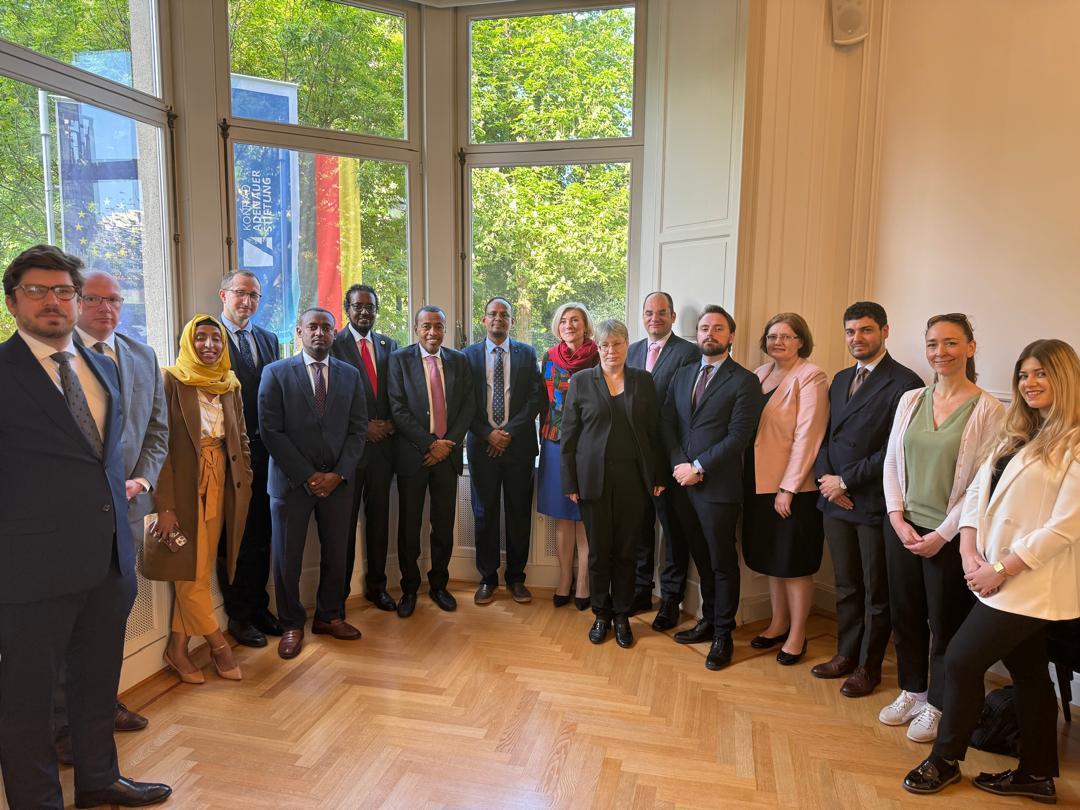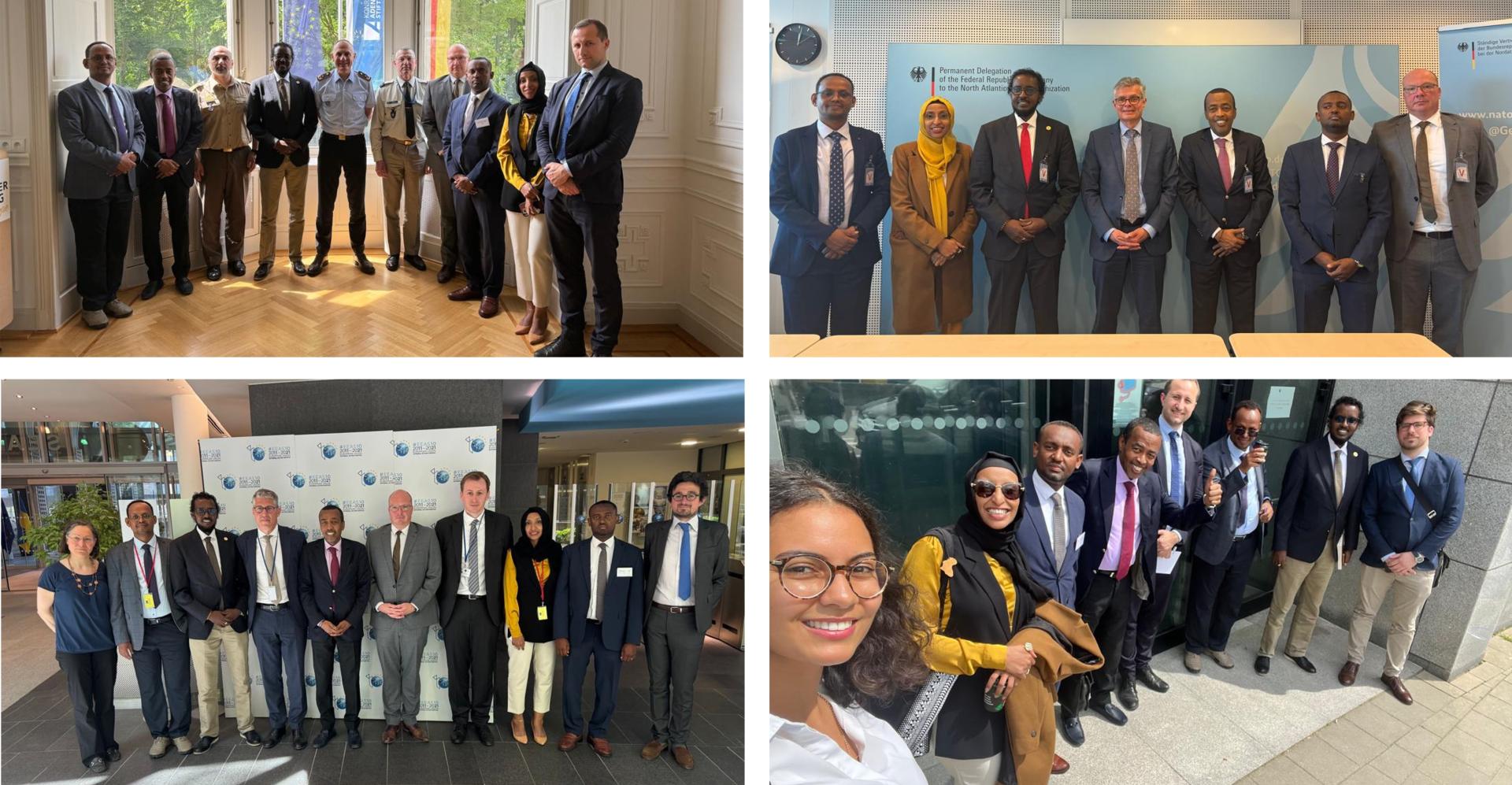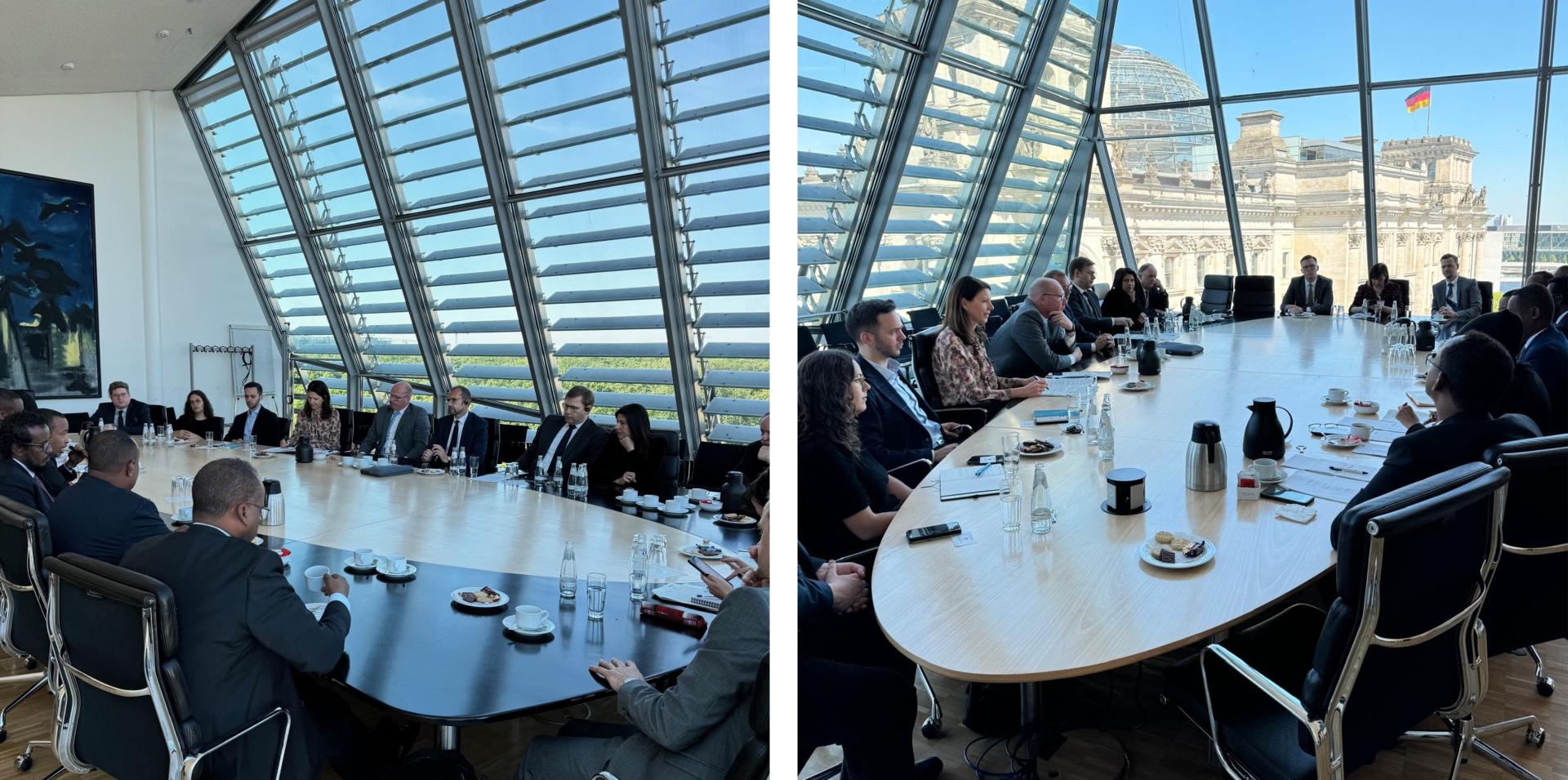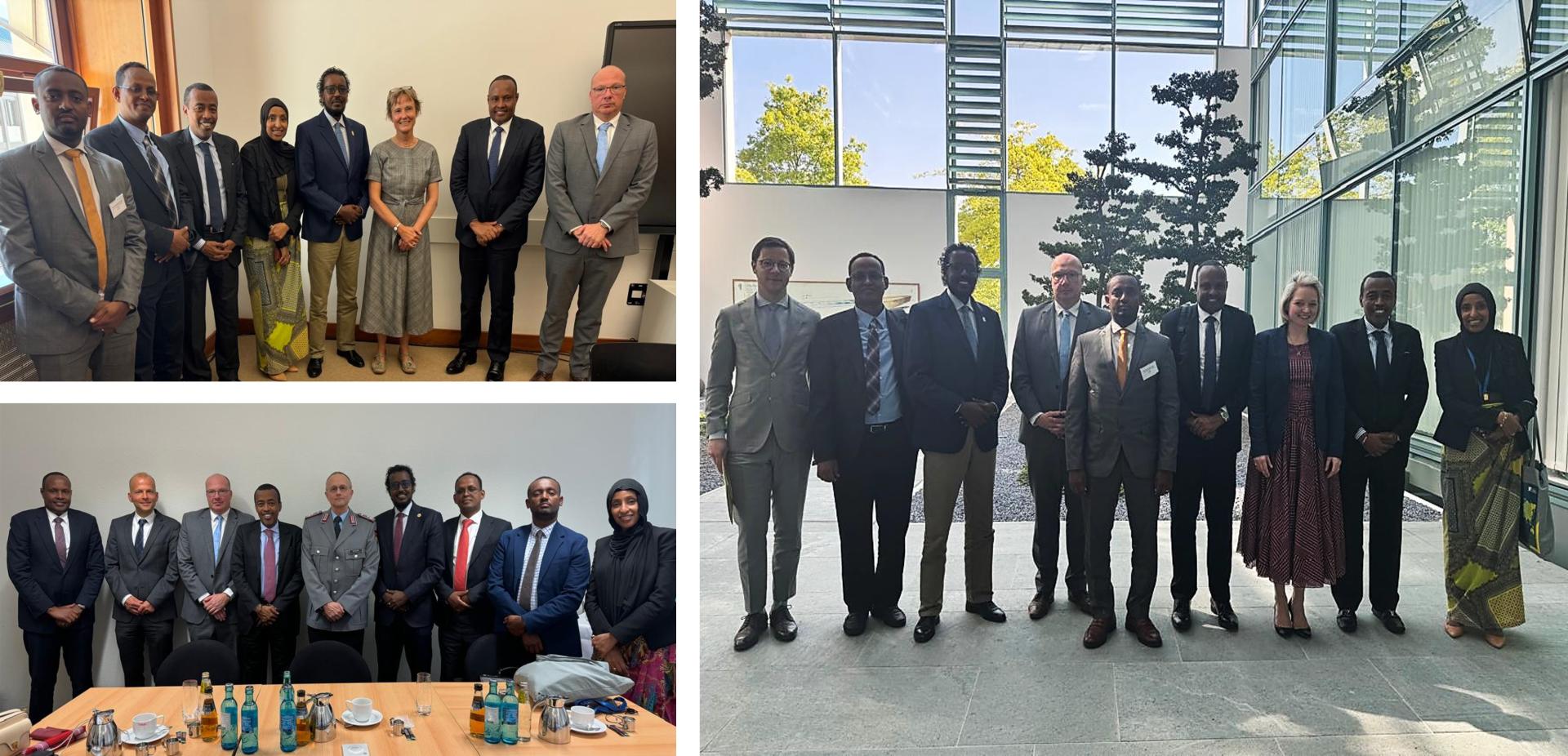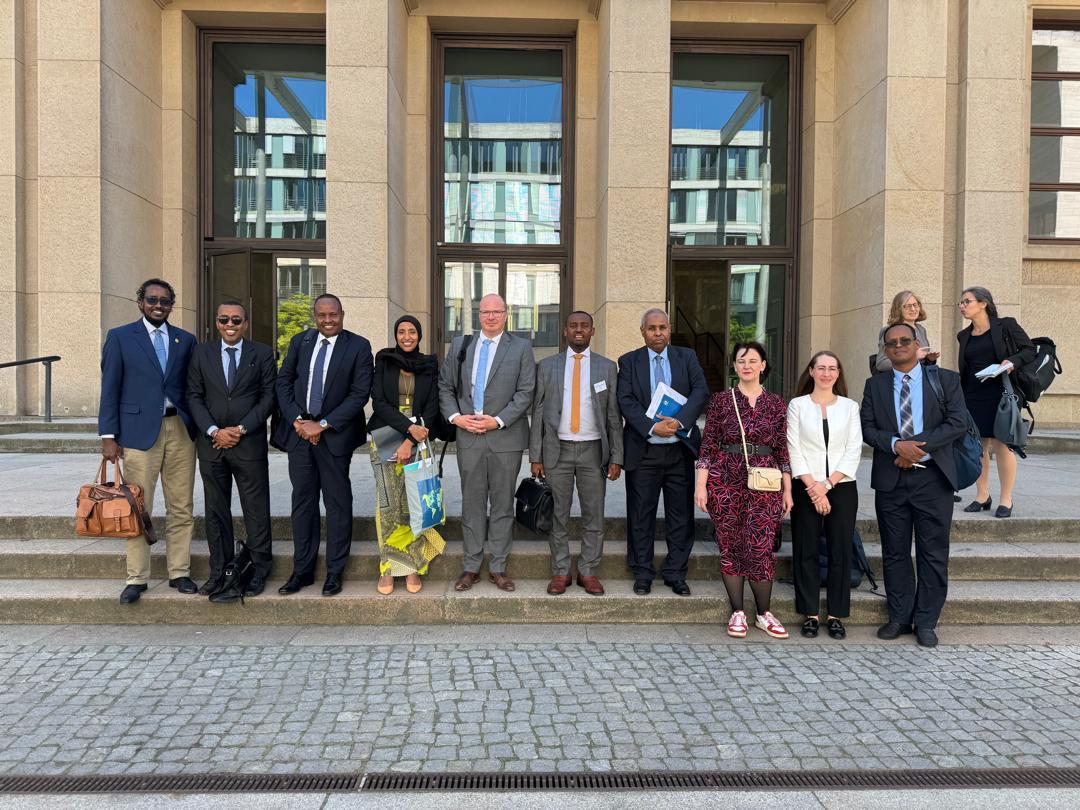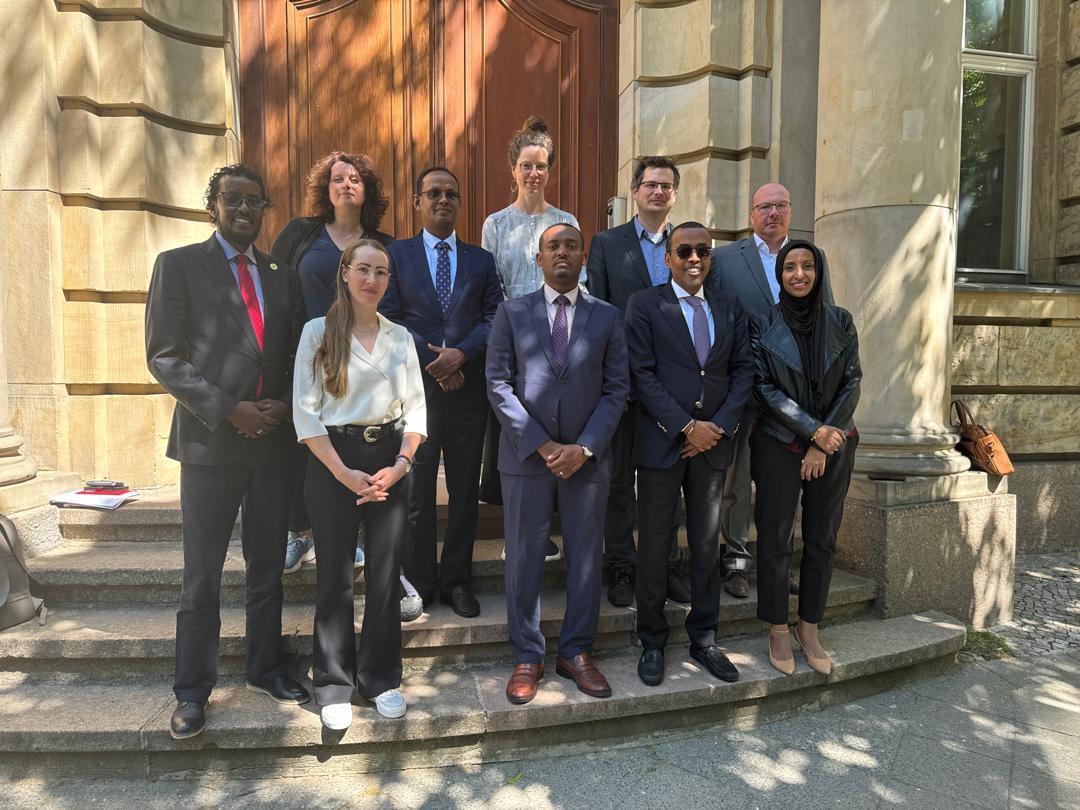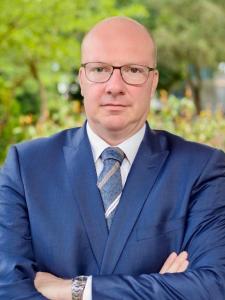The Horn of Africa is of great geopolitical and geostrategic importance for Germany and Europe. Together with the coast of Somalia, the coast of Djibouti borders the Indo-Pacific region and lies opposite the Arabian Peninsula on the Bab al-Mandab Strait, which forms the entrance to the Red Sea. The shipping route through the Bab al-Mandab Strait via the Red Sea and the Suez Canal to the Mediterranean is one of Europe's central trade routes. Until the Houthi attacks began, Europe received 99 per cent of its container imports from its most important trading partner China via this itinerary. The dynamics of the Security Arena in the Red Sea and the Horn of Africa therefore affect fundamental German and European interests. In addition to the escalation in the Red Sea, intra- and inter-state conflicts, Islamist terrorism, organised crime and piracy pose acute threats to the region's security. The future of the ongoing military offensive against al-Shabab in Somalia after the expiration of the African Union Transition Mission in Somalia (ATMIS) by the end of the year, the rising diplomatic tensions between Somalia and Ethiopia as a result of the Memorandum of Understanding (MoU) between Ethiopia and Somaliland announced on 1st January 2024 and the war in Sudan represent some of the major security challenges in the region. In addition to its military involvement in the Red Sea, which takes place in cooperation with the US-led Operation Prosperity Guardian, the EU is active in several other regional stabilisation missions in the Horn of Africa. With the anti-piracy mission EUNAVFOR Atalanta, the military training mission EUTM Somalia and the civil capacity-building mission EUCAP Somalia, the EU actively involved in security cooperation, is especially in Somalia. As the last stable country in the Horn of Africa, Djibouti is of particular importance for the region’s security and therefore, an important partner for Germany and the EU.
Accompanied by Nils Wörmer, the Director of the RP SIDODI East Africa, the delegation on the Djiboutian side consisted of Ambassador Mohamed Idriss Farah, Chief Adviser to the Minister of Foreign Affairs and International Cooperation of Djibouti and former Ambassador of Djibouti to Ethiopia, Mohamed Abdoulkader Moussa, Director of the Institut des Études Diplomatiques (Institute of Diplomatic Studies; IED) and Dr Aden Omar Abdillahi, Director of the Institut d'Études Politiques et Stratégiques (Institute for Political and Strategic Studies; IEPS) at the Centre d’Étude et de Recherche de Djibouti (Djibouti Centre for Studies and Research; CERD). From Somalia, Ahmed Abdi Koshin, Member of the Somali Federal Parliament, and Secretary of the Defence Committee, Abdullahi Mohamed Nor, former Minister of Finance and former Minister of Internal Security of Somalia and now Senior Adviser to the President of the Federal Republic of Somalia for Preventing and Countering Violent Extremism and Director of the Tubsan National Center for Preventing and Countering Violent Extremism, and Samira Gaid, a leading regional security expert who was security adviser to the former Somali Prime Minister and led Somalia's Security Sector Reform Strategy from 2017 to 2020, took part in the delegation trip. In Brussels, the delegation was accompanied by Dr Olaf Wientzek, Director of the KAS Multinational Development Policy Dialogue Brussels and his team member Louis Bout. Both were also intensively involved in the preparation of the programme. In Berlin, the delegation was accompanied by two Policy Advisers of KAS, Dr Susanne Conrad and Alina Reiß.
The comprehensive delegation programme began on Monday, 13th May 2024 at the KAS office in Brussels with a joint breakfast with international representatives from the European Council's Africa Working Party (COAFR). This was followed by talks at NATO headquarters on NATO's current political priorities, cooperation with the African Union and NATO partnerships in the Middle East and North Africa. In addition, there was a separate exchange with the Deputy Ambassador of the Germany Representation to NATO. The delegation then travelled to the European Commission's Department for International Partnerships, where the delegation exchanged views with senior executives on the EU missions in the Horn of Africa. At a joint dinner with various Brussels-based think tanks, there was a lively exchange on the opportunities and possibilities of EU involvement in the Horn of Africa. Before travelling on to Berlin on Tuesday afternoon, the delegation held talks with the European External Action Service and some high-ranking military officers from the EU Military Staff, including the German Major General Werner Albl.
The programme in the German capital Berlin began with an in-depth exchange on German-Somali and German-Djiboutian relations at the Federal Foreign Office with Ambassador Anka Feldhusen, Director for Crisis Prevention and Stabilisation, and other high-level staff from the Sub-Saharan Africa Department of the AA. This was followed by a discussion in the Federal Chancellery with Dr Ina Heusgen, Head of Department Global Issues, United Nations, Sub-Saharan Africa and Sahel. In the afternoon, the delegation took part in the panel discussion “75 years of NATO – back to the roots” at the KAS headquarters together with MP Peter Beyer and German Major General Jörg See. Over dinner, Yacin Houssein Doualé, Ambassador of the Republic of Djibouti to Germany, gave an insight into German-Djiboutian cooperation. The next morning the delegation held intensive talks in the German Bundestag with members of the CDU/CSU parliamentary group including Dr Johann David Wadephul, Dr Katja Leikert, Serap Güler, Thomas Erndl and Thomas Röwekamp, as well as with the parliamentary group's foreign and security policy adviser, Hennig Speck, on expanding the German-Djibouti partnership. The very productive talks built on the delegation visits to Djibouti of Dr Gerhard Wahlers, Deputy Secretary General of the KAS and Henning Speck in January 2024 and by Thomas Röwekamp MP in May 2024, both organised by the RP SIPODI East Africa. After a discussion with Dr Gerhard Wahlers and a business lunch with several KAS representatives, including Caroline Kanter, Deputy Head of the Division European and International Cooperation, Dr Stefan Friedrich, Head of the Department Sub-Saharan Africa and Dr Christina Krause, Head of the Department International Politics and Security Affairs, the delegation held talks at the Federal Ministry of Defence and the Federal Ministry for Economic Cooperation and Development, where Germany's engagement in the Horn of Africa was analysed and opportunities for further cooperation discussed. The extensive delegation programme ended with a discussion with renowned German political scientists at the German Institute for International and Security Affairs (SWP) on long-term trends and developments in the Horn of Africa.
About this series
The Konrad-Adenauer-Stiftung, its educational institutions, centres and foreign offices, offer several thousand events on various subjects each year. We provide up to date and exclusive reports on selected conferences, events and symposia at www.kas.de. In addition to a summary of the contents, you can also find additional material such as pictures, speeches, videos or audio clips.



